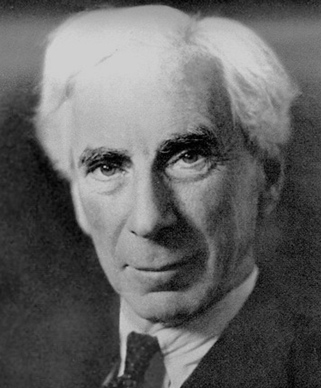The views expressed in our content reflect individual perspectives and do not represent the authoritative views of the Baha'i Faith.
Any religion which is not a cause of love and unity is no religion. – Abdu’l-Baha, Paris Talks, p. 131.
What is the mission of the Prophet, and what is the object of a divine law? …There is no doubt that the purpose of a divine law is the education of the human race, the training of humanity. All mankind may be considered as pupils or children who are in need of a divine Educator, a real Teacher. The essential requirement and qualification of Prophethood is the training and guidance of the people. Therefore, we shall first consider the efficacy of the teachings of those who have been followed and accepted as the Prophets of God. The question that must be answered is: Have They taught mankind? Have They proved Themselves efficient Educators? – Abdu’l-Baha, The Promulgation of Universal Peace, p. 411.

Bertrand Russell 1938
If the prophets’ mission is the education of humanity, Abdu’l-Baha justifiably asks, what have they taught us? This critical question, debated every day somewhere in the world, attempts to evaluate the contributions of the prophets throughout history. Some thinkers—the Marxist-Leninist atheists, historians like Bertrand Russell, the New Atheist philosophers, for example—view the contributions of religion over the centuries as unimportant, irrelevant and even destructive. Others—philosophers and historians from widely varying viewpoints and beliefs—see the contributions of religion as vital to humanity’s education and progress. Without religion, they point out, humanity could have fared much worse, and certainly would not have developed its basic systems of morality and ethics, its arts, its early sciences, its humanitarian institutions, its hospitals, its disaster relief agencies, or ended slavery and begun to address the oppression of women.
In his book Some Answered Questions, Abdu’l-Baha addressed this issue of the efficacy of religion and its contributions to human progress extensively. He begins by extolling the value of education:
Now observe that it is education that brings East and West under man’s dominion, produces all these marvellous crafts, promotes these mighty arts and sciences, and gives rise to these new discoveries and undertakings. Were it not for an educator, the means of comfort, civilization, and human virtues could in no wise have been acquired. – Some Answered Questions, newly revised edition, p. 9.
Then Abdu’l-Baha lists the necessary qualities of a divine educator:
This educator must undeniably be perfect in every way and distinguished above all men. For if he were like others he could never be their educator, particularly since he must at once be their material, human and spiritual educator. That is, he must organize and administer their material affairs and establish a social order, that they may aid and assist each other in securing the means of livelihood and that their material affairs may be ordered and arranged in every respect.
He must likewise lay the foundation of human education—that is, he must so educate human minds and thoughts that they may become capable of substantive progress; that science and knowledge may expand; that the realities of all that exists may be revealed; that learning, discoveries, and major undertakings may day by day increase; and that matters of the intellect may be deduced from and conveyed through the sensible.
He must also impart spiritual education, so that minds may apprehend the metaphysical world, breathe the sanctified breaths of the Holy Spirit, and enter into relationship with the Concourse on high, and that human realities may become the manifestations of divine blessings, that perchance all the names and attributes of God may be reflected in the mirror of the human reality and the meaning of the blessed verse “Let us make man in our image, after our likeness” may be realized. – ibid, pp. 10-11.
The Baha’i teachings ask “Can this be accomplished through the agency of mere human power?” Abdu’l-Baha emphatically answers:
No, by God! For example, Christ, alone and single-handed, raised the banner of peace and amity—a feat that the combined forces of all the mighty governments of the world are unable to accomplish… The point is that the advent of Christ brought about fellowship among those differing peoples… Our meaning is that Christ united these nations, but after a long while the governments caused the resurgence of discord. – ibid, pp. 11-12.
Behold! One sanctified Soul revives the world of humanity, transforms the face of the globe, develops the minds, quickens the souls, inaugurates a new life, establishes new foundations, orders the world, gathers the nations and religions under the shadow of one banner, delivers man from the realm of baseness and deficiency, and exhorts and encourages him to develop his innate and acquired perfections. Certainly nothing short of a divine power could accomplish this feat! One must examine this matter fairly, as this indeed is an occasion for fairness. – ibid, p. 11.

















Comments
Sign in or create an account
Continue with Facebookor